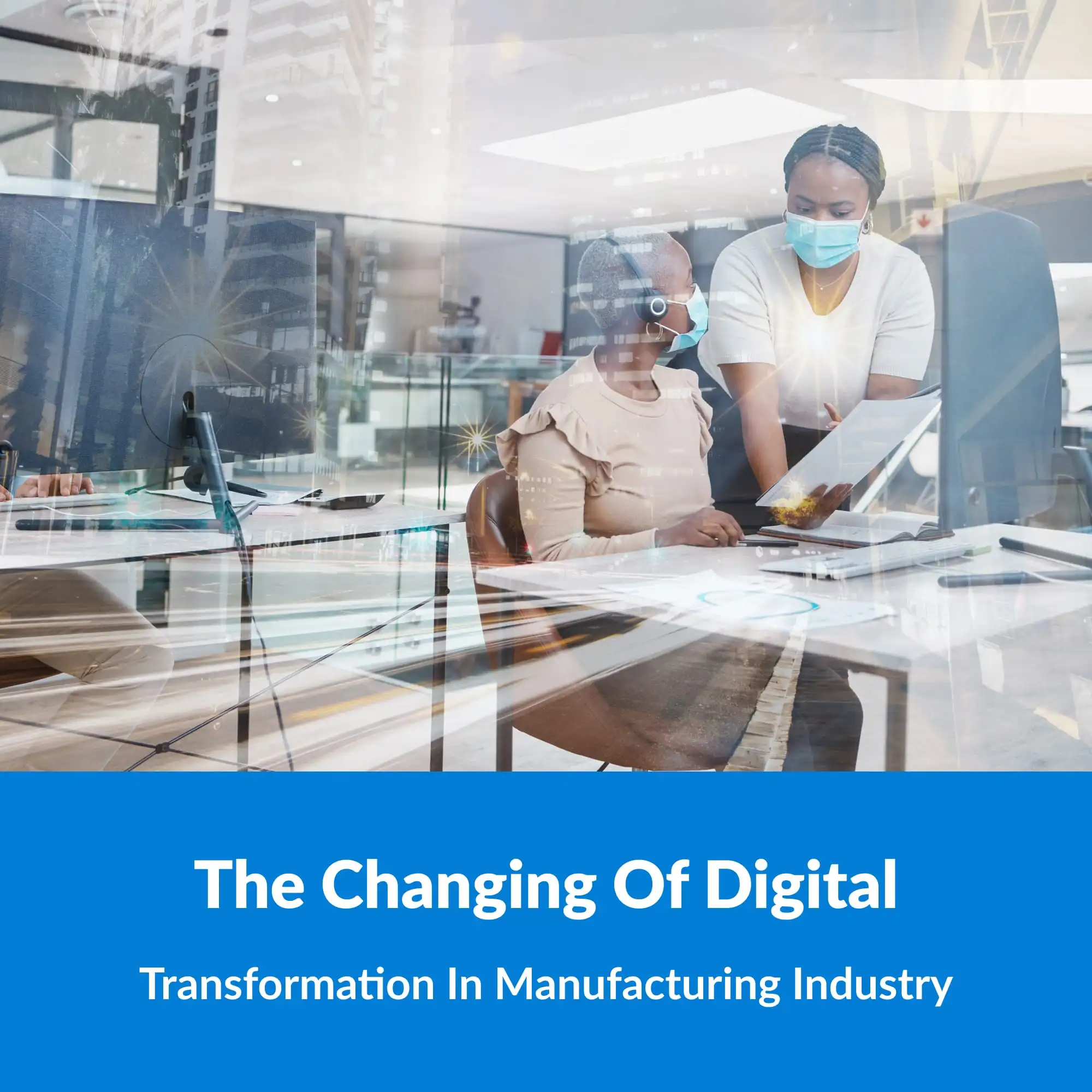
Recent studies indicate that 67% manufacturers are embracing digital technologies at an accelerated pace post-pandemic, marking a significant turning point in the industry’s evolution (According to the 2021 Digital Transformation Assessment study conducted by IBM and The Manufacturer). Manufacturing enterprises must invest in automation software, digital capabilities and technologies to stay relevant in the long run.
The digital transformation in manufacturing represents a significant opportunity to improve operational efficiency, increase staff productivity, reduce costs, and enhance the customer experience. These expedited technology initiatives create adoption issues for the workforce that traditional training methods struggle to remedy.
What is manufacturing digital transformation:
At its core, manufacturing digital transformation entails the integration of advanced digital technologies into traditional manufacturing processes. This transformation often referred to as Industry 4.0 includes the convergence of automation & robots, Internet of Things (IoT), Artificial Intelligence (AI), and smart factory production.

Reshaping Traditional Manufacturing Processes:
- Automation and Robotics: In the wake of digital transformations, robots and automated systems have emerged as pivotal assets in manufacturing. Repetitive tasks that were once labor-intensive are now being handled by advanced robotics, resulting in heightened precision and reduced human errors. Manufacturers are witnessing increased efficiency and output, marking a significant shift in production paradigms.
- Smart Factories: The concept of smart factories is transforming manufacturing floors into interconnected ecosystems where devices and systems collaborate seamlessly. Real-time communication and data exchange optimize production processes, enabling predictive maintenance and minimizing downtime. The result is a more agile and responsive manufacturing environment.
- Data-Driven Decision-Making: Data analytics has become the bedrock of informed decision-making in manufacturing. Real-time data insights guide operational choices, leading to minimizing disruptions and improved overall efficiency. Manufacturers harness data to anticipate market trends, streamline supply chains, and optimize resource allocation.
Impact on Product Development and Innovation:
- Rapid Prototyping: Digital transformation has revolutionized product development through technologies like 3D printing and additive manufacturing. These tools expedite prototyping and iterative design, reducing time-to-market and fostering innovation.
- Virtual Reality (VR) and Augmented Reality (AR): VR and AR technologies are revolutionizing product design reviews, training, and maintenance. Manufacturers utilize immersive experiences to refine product concepts and provide comprehensive training for their workforce.
- Supply Chain Optimization: IoT sensors offer real-time visibility into the movement of raw materials and finished products, enabling predictive analytics for demand forecasting. This level of insight minimizes disruptions, reduces inventory costs, and enhances supply chain efficiency.
Changing Workforce Dynamics:
The digital transformation journey is intrinsically tied to evolving workforce dynamics. As technology evolves, so too must the skills of the workforce.
Collaboration with Machines: Human-machine collaboration is redefining job roles, and manufacturers must learn how to leverage automation and AI to empower their workforce and increase efficiencies. With this machine-powered collaboration, employees will amplify productivity and deliver superior outcomes.
Upskilling and Reskilling: Continuous learning is pivotal in the face of technological disruption. Workforce members must embrace upskilling and reskilling initiatives to remain relevant and effective. For example, when it comes to learning new or updated software applications, some manufacturers use Digital Adoption Platforms (DAPs) in their workforce development. DAPs (also known as Electronic Performance Support Systems or EPSS) educate employees on how to use new technology effectively.
These platforms guide users step-by-step through various application processes and tasks from within the manufacturing application, eliminating inefficient and ineffective training and support methods. But selection of the best DAPs for manufacturers can be a confusing and costly process. Amongst its competitors such as Walkme and Whatfix, Epilogue Opus stands out for its in-application convenience and vast number of enterprise platforms that it supports.
Challenges and Considerations:
While digital transformation offers transformative benefits, it also presents challenges.
- Data Security: Safeguarding sensitive manufacturing data from cyber threats is paramount, especially as factories get connected. Manufacturers must implement robust cybersecurity measures to ensure the integrity of their operations and roll out robust training for staff to ensure compliance with security protocols.
- Integration Complexities: Integrating new technologies with existing systems can be complex. Manufacturers need well-thought-out integration strategies to prevent disruptions and ensure seamless operations.
- Change Management: Effective change management strategies are essential to address workforce resistance and ensure a smooth transition to digital transformation. Communication, training, and support mechanisms are crucial components of a successful change management plan.
Conclusion:
The manufacturing industry stands on the precipice of a digital revolution driven by the convergence of automation, data analytics, and AI. While the COVID-19 pandemic may have propelled this transformation, manufacturers must recognize the modernization pace is here to stay and embrace change and seize the opportunities presented by the evolving landscape. As the industry continues to evolve, manufacturers that adapt and innovate will emerge as leaders, shaping the future of manufacturing by leveraging cutting edge technologies.
DAPs such as Epilogue Opus are the critical components to ensure the manufacturing team’s ability to successfully adapt. The Epilogue team is here to help show how DAPs play a vital role in successful digital transformation involving critical applications and how to make a DAP selection with scalability, extensibility, and affordability.





